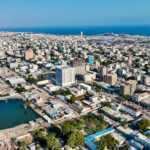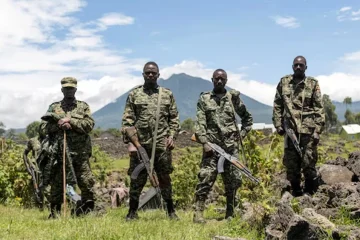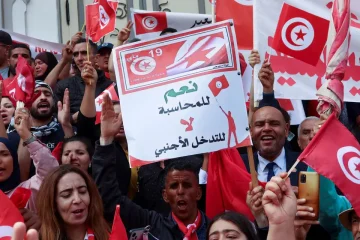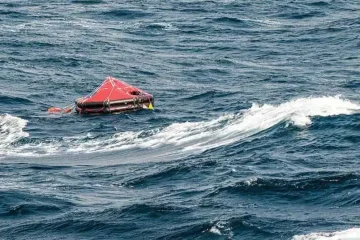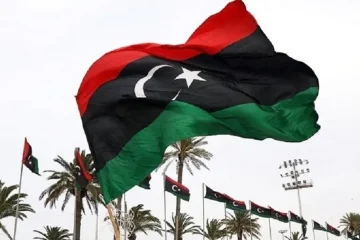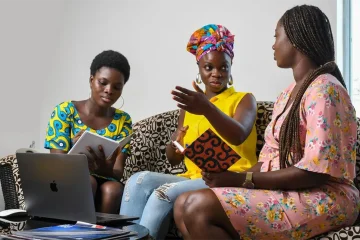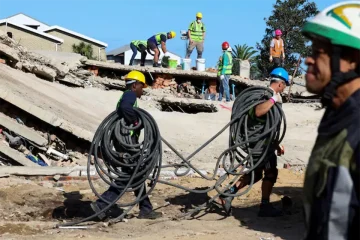TWO African projects have emerged as finalists in the 2023 edition of the prestigious Earthshot Prize, a global challenge that champions environmental solutions with the potential for global impact.
The two are ‘ABALOBI’, a South African endeavour focused on ocean revival, and Sierra Leone’s ‘Freetown the Treetown’, dedicated to protecting and restoring nature through urban forestry. These projects were chosen from a pool of over 1300 nominations, spanning six continents.
‘ABALOBI’, derived from the isiXhosa word for fisher, employs easily scalable technology in collaboration with small fishing communities. Its aim is to record fish catch data, ultimately driving initiatives that enhance community livelihoods and fairness while avoiding overfishing.
This initiative is crucial considering that out of the 6.5 million fishers in Africa, a staggering 5.2 million engage in small-scale fishing. According to estimates from the UN Food and Agriculture Organization (FAO), small-scale fisheries contribute up to 60% of the continent’s total production.
With African Development Bank estimates showing Africa loses one million metric tons of fish per year due to overfishing, there is an underlying need to advance initiatives to curb the overexploitation of ocean resources.
According to Serge Raemaekers, co-founder and managing director of the ABALOBI project, small-scale coastal communities will play a key role in achieving this.
“Our technology, developed in partnership with fishing communities, is both user-friendly and can be implemented on a large scale. This means responsible small-scale fishers worldwide can be recognized as guardians of the ocean,” he explains in a statement.
Since its inception in 2018, the project has enlisted 1,600 fishers from 12 countries. They simply need to log into a user-friendly smartphone application to record their catch volume and access a range of other valuable resources.
ABALOBI’s progress has been significant. A statement from the organization describes the impact made thus far as having a “meaningful triple bottom line impact in small-scale fisheries.”
“Initially, 60% of the fish logged on the app were species classified as ‘of concern.’ Now, more than 90% come from ecologically resilient fish stocks,” Raemekers detailed.
Meanwhile, ‘Freetown the Treetown’ is a city-led initiative involving a pay-to-grow scheme for planting, nurturing, and digitally tracking trees. City residents receive compensation for planting and monitoring trees and mangroves, funded through tokens sold on carbon markets.
Former Mayor and Mayor-Elect of Freetown, Yvonne Aki-Sawyerr, leads the city council in raising awareness and engaging the community in restorative activities.
“By combining community engagement with innovative digital tools, we believe we have a powerful solution that allows urbanization and conservation to co-exist,” she explained.
Over half of humanity resides in cities, and projections indicate that it will reach 70% by 2050. African cities are among the world’s fastest-growing, with UN projections suggesting the continent will boast up to 15 megacities of over 10 million people each by 2050.
This urban population surge poses a significant threat to urban forests. The benefits of urban forests, from carbon capture to filtering pollutants, are immense, as highlighted in UN-HABITAT’s Green Cities Initiative.
‘Freetown the Treetown’ is emerging as a model in future urban planning, with plans to plant one million trees by 2024. The digital platform enables close monitoring, with tree survival rates currently exceeding 80%.
Both finalists are in the race to secure one of the five £1 million (more than US$1.2 million) prizes at the third-annual Earthshot Prize awards ceremony in Singapore in November. Additionally, they will receive mentorship, resources, and technical support through the Earthshot Prize Fellowship Program, a year-long initiative designed to accelerate the growth of their groundbreaking solutions.
Backed by Prince William, the prize seeks to support projects implementing five critical goals: protecting and restoring nature, cleaning our air, reviving oceans, building a waste-free world, and addressing climate change.
However, according to Richard Kioko, an environment and development policy expert at the Youth for Climate Action, a Nairobi-based youth-led social enterprise, beyond the prize, the two reaffirm the many innovative and diverse solutions being undertaken across different sectors by Africans in a bid to propagate sustainability and counter climate change.
“Initiatives are now multi-sectoral and they cut across different countries… Such challenges (the Earthshot Prize) are critical as they not only bring these solutions to the limelight but also because of the high level of technical and financial support they offer,” Kioko said.
Useful links:
https://abalobi.org/
https://earthshotprize.org/the-prize/earthshots/



